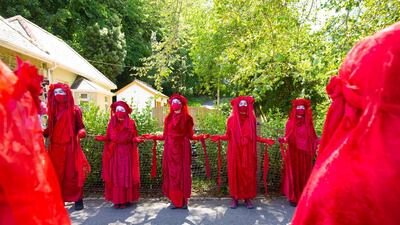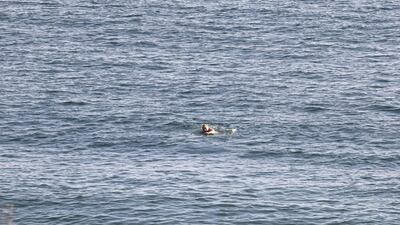Explained: what is the G7 and why is the 2021 summit in Cornwall?
G7 leaders agreed to maintain the global fiscal stimulus launched during the pandemic on Saturday and put at the heart of it a US-backed infrastructure initiative dubbed the ‘Build Back Better for the World’ plan.
US President Joe Biden pushed his fellow leaders to show that the elite group can act as the engine of recovery for countries suffering the Covid-19 induced pandemic downturn.
The offer for high quality financing for vital infrastructure, from railways in Africa to wind farms in Asia is part of a White House vision that leading democracies can retake their role leading multilateral cooperation.
Emmanuel Macron, the French President, emphasised support for a new era in international co-operation in a bilateral meeting with the US president at the Carbis Bay summit in south-west England.
"What we need is co-operation and I think its great to have a US president part of the club and very willing to co-operation," he said. "What you demonstrate is that leadership is partnership."
Mr Biden responded with his pledge to demonstrate "America is back" a point that reinforces his China policy and sets the stage for his first presidential meeting with Vladimir Putin next week.
Officials said that in the round table meeting the US pushed for strong language in the final communique on Russia, supported by the host Boris Johnson and the Canadian leader Justin Trudeau.
Germany's Angel Merkel argues that the pressures of the pandemic means keeping links alive with Beijing and that specific "action-oriented" measures are not helpful. In that the German leader got support from Mario Draghi, the Italian leader.
The influence on the global economy by the perceived rivals to the Western nations has been the great preoccupation of the meeting. The likely outcome is a joint task force to target areas that the US can build cooperation on policies with its allies over time.
The infrastructure initiative not only provides additional funding for developing countries in embracing a "greener recovery" but also represents a counterweight to China's Belt and Road initiative as a source of diplomatic leverage. Chinese diplomats retort that the "time is over" for a small elite group of countries to marshal global development.
While the framework lacks a firm budget, again as a result of German opposition, backers belief it can support sustainable development and green transitions in developing countries.
UK officials said the proposal would grant developing countries access to more finance to accelerate a global shift to renewable energy and sustainable technology. The initiative would form part of the Cop26 Summit in November also in the UK.
“As democratic nations we have a responsibility to help developing countries reap the benefits of clean growth through a fair and transparent system," Mr Johnson said. "The G7 has an unprecedented opportunity to drive a global Green Industrial Revolution, with the potential to transform the way we live.”
The British host of the gathering had a tough Saturday morning as the meetings got under way in earnest. He was pressed by European leaders to live up to the terms of the Brexit deal that London now says cannot be implemented for Northern Ireland trade.
Northern Ireland protocol fallout isolates UK
The UK prime minister lashed out at his European guests and warned he may soon be forced to suspend a key part of the Brexit deal agreed just last year.
He said the EU leaders needed to "get it into their heads" the protocol was interfering with the UK's national markets. "I think that to be fair there's quite a lot of misunderstanding around the EU about the situation in Northern Ireland, the balance of the Good Friday Agreement, the peace process," he said.
"I was just, in a gentle way, getting across what that means and I think that we'll have some pragmatic solutions."
The leaders of the G7 – the US, Canada, Britain, Germany, Italy, France and Japan – view the gathering at Carbis Bay as a chance to show the world that the richest democracies can offer help to a recovering global economy. Pledging to help vaccinate the rest of the world is the most pressing plank of this recovery.
Director general of the World Health Organisation, Tedros Adhanom Ghebreyesus, on Saturday welcomed the sharing sentiments but said “we need more, and we need them faster.”
“The challenge, I said to the G7 leaders, was that to truly end the pandemic, our goal must be to vaccinate at least 70 per cent of the world’s population by the time the G7 meets again in Germany next year.”
At the opening session, the members were joined by South Korean, Indian, Australia and South African leaders as well as Antonio Guterres, the UN Secretary General.

















